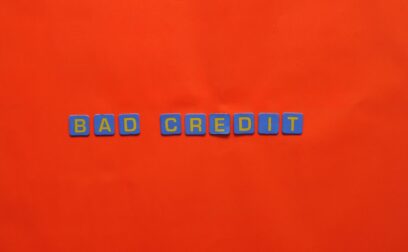Choosing the right kind of funding is important if you want to ensure your new business is set up for success. Adequate funding can help you to expand, buy equipment, cover marketing costs and hire staff where needed.
For this reason, it’s worth taking the time to consider the different funding options available to you so that you can assess what works best.
What’s the first step in funding a small business?
Before you decide how to get funding for your new business, you need to consider how much funding you actually need. As well as thinking about how much it will cost to initially startup your business, you’ll also need to factor in your operating costs for the year ahead.
It’s important to ensure you have enough money to help your business get off the ground and succeed, but you should also avoid borrowing too much and burdening yourself with a lot of debt. Carefully estimating how much income you’ll generate over the next year should help you work out how much funding you will require.
Once you’ve done this, there are three initial options that are worth exploring:
Using your own money
Investing your own money into your business can make you look more attractive to lenders if you need to borrow further funds. Using your own money helps to show lenders you’re confident that your business will succeed – after all, if you don’t want to invest in it, why would anyone else?
You might have a lump sum ready to invest if you’ve built up a decent savings pot or if you’ve received a large redundancy payout or inheritance.
Business credit cards
Business credit cards work in the same way as personal credit cards but are designed for business use. You can use a business credit card whether your business is just starting out or it’s more established.
Business credit cards let you borrow flexibly up to your set credit limit. You can use them to pay for goods or services and then pay off the balance at a later date. Most business credit cards offer interest-free purchases for up to 56 days. However, if you don’t pay off your balance in full by the statement due date, interest will be charged and rates can be high.
It’s therefore important that you don’t spend more on your credit card than you can afford to repay. Keep in mind that missed or late payments can result in fees and can affect your credit record.
Borrowing from family and friends
You might also have family members or friends who have sufficient funds to invest in your business. One of the biggest benefits of this is that interest rates can be significantly lower compared to borrowing from a bank or another lender. It can also be a quicker process.
However, it can also put serious strain on your relationship if things turn sour. For this reason, it’s vital that you have an official written agreement so that there are no misunderstandings. This should explain whether the money is a loan, investment or gift and, if you need to repay the money, also detail how repayments will be made and what happens if you can’t keep up with them.
Can I finance equipment and vehicles?
If you need specific equipment or vehicles for your business, you don’t necessarily have to take out a loan or have the money to pay for them upfront. Instead, you could consider asset finance, with common options being hire purchase and leasing.
With hire purchase, you pay an initial deposit for the equipment and the remaining cost is split into monthly instalments, with interest added on top. Once you’ve made the last payment, you’ll own the equipment.
With leasing, you rent the equipment from the finance provider and pay a regular fixed fee each month over a set term. Again, interest is added on top. At the end of the term, you will often be given the opportunity to pay a sum to buy the equipment or vehicle, continue to lease it, or cancel the agreement.
Leasing an item can work out to be more expensive overall compared to paying for it upfront. But it can enable you to use equipment you might not otherwise have been able to afford. Plus, if the equipment or vehicle breaks down, it’s often up to the finance company to pay for repairs.
How could a bank help me fund a business?
There are a number of ways a bank can help you fund a business. Firstly, if you have opened a business bank account, you might have access to an overdraft which can help cover certain costs.
However, overdrafts should not be used for long-term funding, which means you could be better off approaching your bank for a business loan. This will enable you to borrow a larger sum of money which you must repay in fixed monthly instalments, with added interest.
The downside of business loans is that banks can be unwilling to lend to new businesses as they can be riskier than those that have been trading for a number of years. To increase your chances of acceptance, make sure you have a detailed business plan that outlines how you want to use the money and how you plan to repay it, as well as clear sales projections and a robust cash-flow forecast.
Should I consider alternative lenders?
If you’re struggling to get a business loan with a mainstream bank, you could consider alternative lenders. For example, if could be worth looking at options such as:
Be sure to research these options carefully to see if they could work for you and your business.
What is a startup loan?
A startup loan is simply a business loan designed to help new businesses launch and expand. As with any other type of business loan, you’ll receive a lump sum of capital that is then repaid in monthly instalments at a fixed rate of interest.
To be eligible you must be at least 18 years old and live in Ireland and your business must have been trading for no more than 36 months. You must also be able to prove that you were unable to obtain a loan from alternative sources and that you can afford the loan repayments.
What startup loans are available?
Some startup loans are available from mainstream banks. However, the primary source for startup loans is the government-backed startup loan scheme. These loans are unsecured and offer a lower interest rate compared to business loans offered by mainstream lenders.
Swoop is part of the Irish-wide network of referral partners for government startup loans. You can find out if your business is eligible by applying today.
Could I raise funds through crowdfunding?
Equity crowdfunding is another way new businesses can raise funds. It enables new businesses to collect money from a large number of people (the ‘crowd’) via online platforms. In exchange for their investment, they get a share in the company.
One of the benefits of crowdfunding is that as well as helping you to raise money, it can also raise the profile of your business which can increase its chances of success.
Deciding if crowdfunding is right for you
Crowdfunding won’t be right for every business and many appeals do not succeed. You’re more likely to be successful if your business has good growth potential and offers an innovative idea that people can get excited about. It’s less likely to be suitable if your business model is more traditional, for example if you’re setting up an accountancy or gardening business.
The crowdfunding process
To get started, you’ll first need to decide how much money you want to raise. You’ll then need to create a campaign to show what your business has to offer and why you need the funds. This will be displayed on a crowdfunding website for a set number of days.
To ensure your campaign gets as much interest as possible, you’ll also need to market it on social media.
Could I get funding from business angels?
Business angels or angel investors are private individuals who are prepared to invest their own money into startup or early-stage businesses in return for a share of the company’s equity.
They are usually experienced entrepreneurs which means that as well as offering money, they can also offer their own skills, expertise and contacts which can be invaluable to new businesses.
Business angels usually invest between €50,000 and €500,000 and they might work on their own or as part of an angel network. To attract business angels, you’ll need to have a solid business plan and be able to show them that your business has high growth potential.
Get started with Swoop
If you’re unsure how to get funding for your new business, the team of experts at Swoop will be happy to talk through your options and help you find the best solution for you and your business. Get started today.
Business funding FAQs
There’s no one-size-fits-all solution when it comes to startup loans. To find the best loan for your business, you’ll need to make sure you meet the eligibility requirements and are able to keep up with the repayments. Note that the government-backed startup loans are unsecured and offer a lower interest rate compared to business loans offered by mainstream lenders.
There’s a wide range of grants available across several sectors including grants for manufacturing, tech businesses, transport, energy, information and communication technologies, security, climate, aerospace, food, health, environment, and more. Visit our business grants page to find out whether you are eligible.
It’s easy to compare business funding options at Swoop. Register today to find the best option for your business needs and we can even guide you through the application process.
To find out which lender offers the best rates, you’ll need to shop around and compare your options carefully. Generally, the best rates are offered to businesses that have a good credit history, but this usually means your business will need to be well established. If your business does not yet have a credit history, lenders may look at your personal credit history to give them an idea of how responsible you are as a borrower. The better your credit score, the more likely you are to be offered a competitive interest rate.




































 yet? Register here!
yet? Register here!